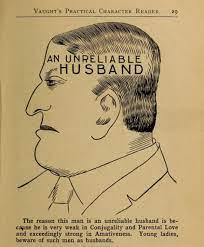Sumerian cuneiform, Egyptian hieroglyphics, manuscripts in Aramaic, Arabic, and Hebrew, the illuminated Christian Gospels, the Talmud, the Koran—with these forms and collections of writing came the expectation that a person would read them out loud and would, in a manner of speaking, conjure their reality. In his book A History of Reading, Alberto Manguel points out that Aramaic and Hebrew, the “primordial” languages of the Bible, draw no distinction between reading and speaking. The same word stands for both. Buddhism and Hinduism also give an exalted place to the spoken word.
The opening words of The Odyssey—“Sing in me, Muse, and through me tell the story”—make this clear: The storyteller is acknowledging at the start that the tale he tells is not his own, and that he hopes for divine assistance in telling it well.
I think it is pretty interesting that people engaged with reading this way. The author of this article notes that it becomes a living story. This also had the benefit of reaching persons that could not read. I wonder if the content was remembered more vividly through both seeing and hearing the words.
Books and texts were rare and expensive until the invention of the printing press, the teacher/preacher used to have one copy and was reading it out loud for the whole class/congregation. Many could not read, so they had to have someone reading the sacred texts for them. Having one book for the whole class - many learned to read upside-down or side-ways while gathering around the teacher.
Reading out loud was in general a common pass time until recently as well. In an age without cellphones or TVs, people played games, musical instruments and read to each other to pass the time. Even after the invention of the press, books had to be payed and for everyone to enjoy them, reading out loud was a time efficient way.
Famously, Mary Shelley’s Frankenstein’s was inspired and written after the author had spend several evenings of unusually bad summer weather on the Swiss mountains with friends. Reading, talking and reciting poetry with and to each other. Impressed by some Gothic horror tales, they challenged themselves to write their own. Only Mary finished the task.
Is this surprising to anyone. Reading/writing being a common skill in the populace is a relatively recent phenomenon.
Sure but this isn’t just about reading and writing as skills. So you don’t find it different that everyone used to read out loud to themselves as a common practice and now everyone reads silently? Would it not be strange if everyone read books out loud to themselves on a bus or in their home?
they were reading out loud to other people who could not read most of the time. At that point it would just be habit because its so unoften one would read alone.
I suppose that makes sense, especially if texts were rare
Pretty surprising to people who dont have great history schooling, which is most people on the planet
We should go back to this. I want to ride on a subway with everyone shouting “Meet hot singles in your area! Improve facial skin with one simple trick! Secret and confidential. Eyes only!”
You’d have to be a stone mason to handle a page burner.
Silent reading is actually a shockingly recent invention. Because the letters “make sounds”, the natural way to process a phonetic alphabet is to make the sounds of the letters as you read them and listen to yourself speaking the text. This goes on way later than many people realize. Being able to do silent reading at all was still a pretty remarkable skill in the time of Shakespeare. Being unable to read something without speaking the words was common probably well into the 19th century. Actually, as someone who works in education I can tell you that I will still recommend kids to read things out loud if they find something difficult. It’s what phonetic writing languages were designed for, and it increases accuracy and comprehension.
St. Augustine (4th c. Roman) notes in his “Confessions” seeing Bp. Ambrose of Milan reading silently to himself and is impressed. They had so much committed to text, it leaves you wondering? Were all their works composed talking it out out loud? I have whole arguments in my head.
That’s an interesting point. I have to imagine that everything on text was written and read aloud. Especially if it was a skill that seemed to be a rare occurrence at that time. It would be interesting to see how life would be if we had continued that tradition.



